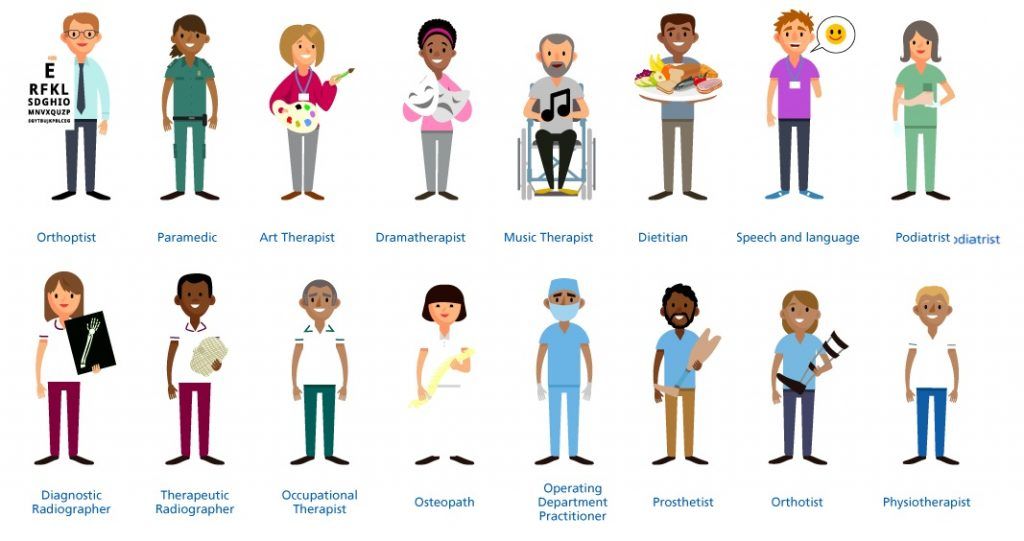Give the Gift of Physiotherapy
Do you know someone who's been struggling with aches and pains, or maybe recovering from an injury? You've seen them wince or rub their sore muscles, and it tugs at your heart. They might have tried different remedies, but nothing seems to bring lasting relief.
Here's where a thoughtful gesture can make all the difference. Did you know that physiotherapy isn’t just for injuries? It’s a gift of health that keeps on giving, helping people feel better, move better, and live better.
This article unpacks the magic of physiotherapy—its benefits are wide-ranging and can transform daily living for anyone tired of being held back by discomfort or mobility issues.
We're going to explore some heartfelt ways you can show someone special how much their well-being means to you through unique gifts they'll actually appreciate. A token that says "I care about your health" may be exactly what they need! Keep reading; we're here to help you find the perfect way to uplift someone with the healing power of physiotherapy.
Key Takeaways
- Physiotherapy is a versatile treatment beneficial for managing pain, speeding up injury recovery, and improving overall musculoskeletal health.
- A physiotherapy gift can express your care for someone's well - being, with options ranging from personalised sessions to ergonomic tools that aid recovery.
- Gift vouchers for physiotherapy are available and can often be purchased online, providing a flexible and thoughtful way to support someone's health journey.
- Diverse types of physiotherapy cater to different needs including manual therapy, acupuncture, exercise programmes and more, offering tailored approaches to wellness.
- Practical gifts like resistance bands or massage tools complement the benefits of physiotherapy by promoting relaxation, enhancing mobility and aiding in rehabilitation.
The Importance of Physiotherapy
Physiotherapy is crucial for maintaining musculoskeletal health, preventing injuries, and managing pain. It encompasses various types of therapy, including exercise therapy and sports medicine, to help individuals recover from injuries and conditions.
Benefits of Physiotherapy
Physiotherapy offers a multitude of health benefits. It can significantly improve your quality of life by helping you to overcome pain, heal faster, and stay fit.
- Enhances Musculoskeletal Health: Regular sessions support muscle strength, joint mobility, and bone density. This can prevent injuries and reduce the risk of conditions like osteoporosis.
- Manages Pain Effectively: Techniques such as massage, manual therapy, and exercises target pain at its source. They provide relief without relying solely on medications.
- Accelerates Injury Recovery: Tailored rehabilitation plans speed up the healing process for sprains, fractures, and post-surgical recovery.
- Promotes Overall Well-being: Integrating exercise therapy into your routine promotes mental health and stress reduction.
- Prevents Future Injuries: Educating clients on proper body mechanics and posture helps lower the likelihood of future ailments.
- Aids in Chronic Condition Management: Conditions like arthritis or back pain benefit from structured physiotherapy programmes that focus on pain management techniques.
- Offers Personalised Care Plans: Each plan is customised to the individual’s needs, enhancing the effectiveness of treatment.
- Provides Access to Specialised Therapies: Treatments may include sports medicine therapies for athletes or occupational therapy for work-related issues.
- Improves Mobility and Balance: Specific exercises can restore function if you're facing difficulties with walking or movement.
- Encourages Active Lifestyle Adoption: Physiotherapists motivate clients to take an active role in their own health through wellness programmes.
Types of Physiotherapy
Physiotherapy includes various types and approaches tailored to specific needs. These may include:
- Manual therapy: Involves hands-on techniques such as massage and joint mobilisation to reduce pain and improve mobility.
- Exercise programmes: Tailored to strengthen muscles, improve flexibility, and restore function.
- Electrotherapy: Utilises electrical stimulation to reduce pain, promote tissue healing, and enhance muscle strength.
- Acupuncture: Involves the insertion of fine needles into specific points on the body to alleviate pain and aid recovery.
- Hydrotherapy: Utilises water-based exercises in a controlled pool environment for rehabilitation and pain relief.
How it Can Help with Injuries and Conditions
Physiotherapy aids in injury recovery and conditions by providing targeted exercises to strengthen muscles, improve flexibility, and reduce pain. It also promotes proper body mechanics to prevent re-injury.
Additionally, physiotherapists use manual therapy techniques to alleviate discomfort and enhance mobility, aiding in the rehabilitation process for a variety of injuries and conditions.
Moreover, physiotherapy plays a crucial role in addressing chronic conditions such as arthritis, fibromyalgia, and back pain. By tailoring treatment plans to each individual's specific needs, physiotherapists can help manage symptoms and improve overall quality of life without relying solely on medication or invasive procedures.
Give the Gift of Physiotherapy
Show your appreciation for a loved one's health and wellbeing by giving them the gift of physiotherapy. Whether it's to aid in recovery from an injury or to provide comfort and relief, physiotherapy gifts can make a meaningful difference in someone's life.
From purchasing gift vouchers for physiotherapy sessions to creating personalised physiotherapy gift baskets, there are many ways to express gratitude and support for those in need of physiotherapy.
Show Appreciation for a Loved One's Health
Express gratitude for a loved one's well-being by gifting them a physiotherapy session. What better way to show appreciation than by giving the gift of comfort and support? Whether it's a sports massage voucher, personalised physiotherapy gift, or a thoughtful physiotherapy gift basket, you can make someone feel valued and cared for in their journey to wellness.
Purchase physiotherapy gift vouchers easily and give your loved ones the opportunity to prioritise their health and recovery with the help of skilled professionals.
Give the Gift of Comfort
When you want to show appreciation for a loved one's health, giving the gift of comfort through physiotherapy is a thoughtful gesture. Physiotherapy helps in alleviating pain and discomfort, promoting relaxation and flexibility, making it an ideal choice for a meaningful present.
You can consider gifting sessions for sports massage, recovery treatments, or chiropractic care to provide your loved ones with the opportunity to take care of their physical well-being.
Consider purchasing gift vouchers for physiotherapy services that your recipient can redeem at their convenience. This not only shows your gratitude but also gives them the flexibility to choose the type of treatment that best suits their needs.
Suggestions for Appropriate Physiotherapy Gifts
Surprise your physiotherapist or a loved one in physiotherapy with thoughtful and practical gifts. Here are some suitable options to consider:
- Ergonomic equipment: Consider gifting items such as lumbar support cushions, ergonomic office chairs, or heat therapy pads to promote comfort and pain relief during recovery.
- Resistance bands: These versatile and portable tools can aid in rehabilitation exercises, making them an excellent gift for someone undergoing physiotherapy.
- Fitness accessories: Encourage a healthy and active lifestyle by gifting exercise balls, foam rollers, or yoga mats to support their recovery journey.
- Massage therapy tools: Provide relief with massage balls, handheld massagers, or foam rollers designed to alleviate muscle tension and aid in recovery.
- Gift vouchers for specialised massages and treatments: Treat your loved one to a sports massage or targeted physiotherapy session by purchasing gift vouchers from reputable clinics.
- Therapeutic aids: Consider items like hot/cold packs, TENS units, or acupuncture mats for at-home relief from discomfort and pain associated with injuries or conditions.
- Personalised care packages: Assemble a thoughtful care package including items like essential oils, relaxation teas, and self-care products to promote wellbeing during the healing process.
- Educational resources: Gift books on injury prevention techniques, mindfulness practices, or healthy living to support their overall well-being beyond the current treatment.
How to Purchase Physiotherapy Gift Vouchers
- Contact the Physiotherapy Clinic: Reach out to the physiotherapy clinic or facility where the recipient usually receives treatment and enquire about their gift voucher options.
- Online Purchase: Many physiotherapy clinics offer online purchase options for gift vouchers through their websites or designated platforms.
- Personalised Message: Consider adding a personalised message to the gift voucher to show appreciation and convey your best wishes to the recipient.
- Payment and Delivery: Finalise the payment process and choose a convenient delivery option such as email delivery or postal mail for the physical voucher.
- Redemption Details: Ensure that you obtain clear information about how the gift voucher can be redeemed and any specific terms and conditions associated with it.
Conclusion
Consider giving the gift of physiotherapy to show your appreciation for a loved one's health and well-being. Physiotherapy gifts can provide comfort and support for those in need of recovery or rehabilitation.
Purchase physiotherapy gift vouchers to offer the thoughtful gift of pain relief and improved physical wellness. Show gratitude by gifting meaningful sessions or sports massage vouchers to express your care for their health journey.



